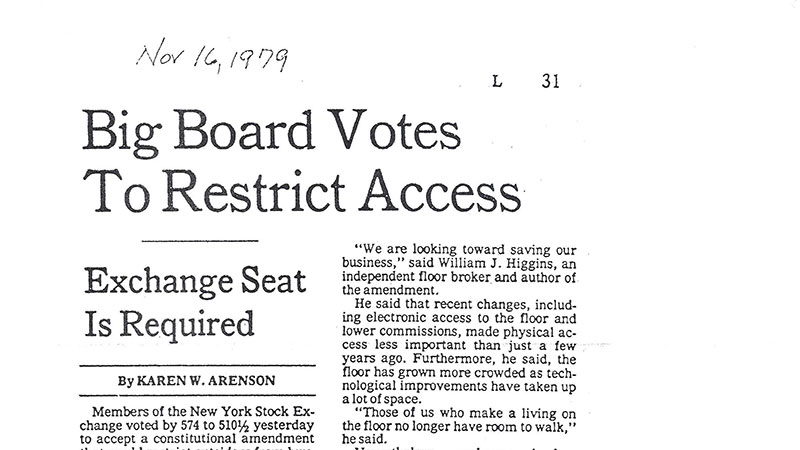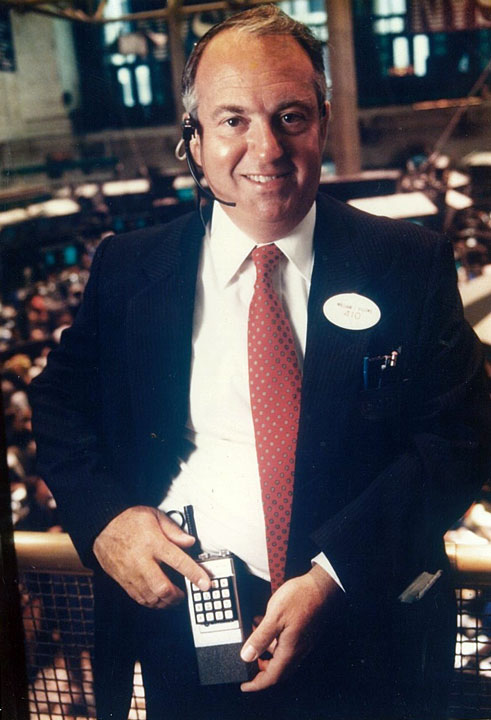This vote saved the NYSE Membership. The Exchange could no longer create Membership (Seats) and Memberships went on to be valued at $8 Million. Higgins held 97 proxies until 3:50 PM Friday Night, too late for Phelan and staff to have the votes recast. -William J. Higgins
Article from New York Times 11/17/1979 below
Big Board Votes To Restrict Access
Exchange Seat Is Required
By Karen W. Arenson
Members of the New York Stock Exchange voted 574 to 510 1/2 yesterday to accept a constitutional amendment that would restrict outsiders from buying yearly access to the exchange without buying an exchange seat. Passage required a simple majority of those voting; the Securities and Exchange Commission must now approve the change.
At a time when the Big Board is under Government pressure to help develop a unified national market system and to open its order flow to others, proponents of the measure saw limiting access as a way to save more of business members and to hold up their seat prices. The exchange leadership, on the other hand, said that adoption of the amendment would undermine the credibility of the exchange as a public institution.
The exchange adopted a constitutional provision allowing nonmembers to buy yearly physical access to the exchange floor in 1977. The idea was to attract additional capital and trading talent, although only four people have used the provision. A yearly membership initially was set at $25,000. In October, the fee was raised to $35,000 and the number of physical access memberships to be offered in the next twelve months was limited to 20. A seat cost $190,000 on October 31.
Nonmembers can also lease seats directly from full members, at rates negotiated with seatholders. But unlike the physical access provisions, which in effect created new seats, leasing arrangements with members are limited to the 1,366 existing seats.
"We are looking toward saving our business," said William J. Higgins, an independent floor broker and author of the amendment.
He said that recent changes, including electronic access to the floor and lower commissions, made physical access less important than just a few years ago. Furthermore, he saidthe floor has grown more crowded as technological improvements have taken up a lot of space.
"Those of us who make a living on the floor no longer have room to walk," he said
Nevertheless, exchange leaders fought the amendment. In a letter to members, John Phelan, a vice-chairman at the exchange and the floor's top elected official said that the matter "came down to one simple fundamental reality: if the membership votes to close the door on the substantial measure of public good will and support it has earned over the past five years."
original: Big Board Votes To Restrict Access By Karen W. Arenson

